
About the Panel
In a season once defined by sunshine and rest, summer in British Columbia now brings an ever-present reminder of the climate crisis: wildfires that threaten landscapes, communities, infrastructure, and learning environments alike. As these climate disasters become more deadly, how can B.C.’s post-secondary institutions respond swiftly, compassionately, and effectively? Join us for a timely panel discussion exploring how the sector can better prepare for, adapt to, and respond during times of crisis. From evacuation orders and connectivity disruptions to student displacement and mental health challenges, our panelists will examine the real and present impacts of climate-related emergencies on learners, faculty, and staff. We will explore questions such as:- How can institutions ensure academic continuity when disaster strikes?
- What does meaningful flexibility look like in a time of crisis?
- How do we support students, especially those already facing barriers, in continuing their studies under extraordinary circumstances?
- What role do collaboration, preparedness, and trauma-informed practices play in institutional resilience?
Register Now!
This notice is to inform you that this session will be recorded, archived, and shared after the event. By participating in this session, you acknowledge that your participation will be recorded and the recording will be made available publicly.About the Panelists
Dr. Alisha David (she/her) is a post-secondary educator, researcher, and lifelong learner who believes in the power of story to transform teaching and learning. Over the past decade, she has held a range of roles in education, from educational assistant to classroom teacher, and she currently works as a full-time college instructor. Her practice and perspective have been deeply shaped by her years living and working in Treaty 8 territory, the ancestral and traditional lands of the Cree, Dene, and Métis peoples. Witnessing the environmental loss of this region has informed her research focus on disaster-induced loss and its implications for adult education. Alisha’s work explores how disruption and grief shape learning and how educators can respond with empathy and foster resilience. Dr. Bala Nikku is an Associate Professor of Social Work at the Faculty of Education and Social Work, Thompson Rivers University. He is a racialized immigrant to Canada from the Global South and brings a rich background as a social work teacher, scholar, and practitioner. In this panel, Bala will share his insights on disaster social work, how he teaches it, and how he strives to make the classroom a sanctuary for learning. How can we turn vulnerabilities and risks associated with disasters into opportunities for learning, hope, curiosity, and resilience? For Bala, resilience is not about suppressing emotions or merely surviving or bouncing back, but about embracing moments of vulnerability as a source of action, strength, and wisdom. Christy Foote (she/her) is the Events Manager at BCcampus. She is an experienced event planner with a background in interior design, known for creating inclusive and engaging experiences. With a focus on accessibility, safety, and community connection, Christy brings both creativity and care to every event she leads. Outside of work, Christy is a competitive fastball player and an avid world traveler, always seeking connection—whether on the field or across the globe. Dr. Theresa Southam (she/her) completed her PhD in Human and Organizational Development in 2020. She is the Department Head of the Teaching and Learning Centre at Selkirk College and a 2025-26 Fielding ISI Fellow. With a long career in environmental communication, Theresa considers her life’s work to be the conservation of thousands of hectares of wetlands. She previously worked with the Federal Department of Fisheries and Oceans, where she coordinated a network of community educators reaching over 10,000 children. She is the author of Driving Social Innovation: How Unexpected Leadership is Transforming Society (2022) and Transforming Trauma through Social Change: A Guide for Educators (2024). More about her work can be found on her website.Event Description
In this interactive two-hour workshop, participants will be guided through the power and practice of reflection in action; a critical tool for deep learning, self-awareness, and both personal and professional growth.
Participants will explore: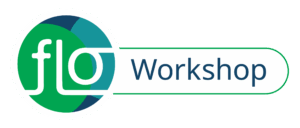
- Why reflection matters: Understanding its role in learning, decision-making, and personal development.
- Effective prompts: How to craft and use reflective prompts to foster deeper insights.
- Ways to engage: How participants can respond to reflection prompts in different formats.
- Creative reflection activities: Engaging, hands-on exercises designed to bring reflection to life.
Through experiential learning, attendees will participate in various reflective exercises, gaining practical tools and strategies to integrate into their teaching, learning, and daily practices.
Register Now!
This session will not be recorded.
About the Facilitator
Helena Prins (she/her) is a Learning + Teaching Advisor at BCcampus, where she coordinates the Facilitating Learning Online (FLO) portfolio. She began her career as a high school teacher in South Africa. Over the past 20 years, she has taught students of all ages and stages on four continents. A golden thread throughout her career has been breaking down barriers to learning.
Session Description
Web accessibility means making sure everyone can use your website, including people with disabilities. This brief session will introduce the basics of digital accessibility and the Web Content Accessibility Guidelines (WCAG). We’ll cover common issues that make websites inaccessible and how this impacts real users. Participants will leave with a clearer understanding of what digital accessibility is and why it is essential.
Learning Outcomes
- Understand the purpose of the Website Content Accessibility Guidelines (WCAG)
- Analyze audience needs and understand diverse user experiences, including that of people with disabilities
- Learn about common issues that make websites inaccessible
- Identify potential website barriers and explore actionable ways to improve accessibility
Schedule
- Introductions and access information – 2 minutes
- Key definitions – 5 minutes
- Overview of the WCAG and common inaccessibility issues – 10 minutes
- Understanding your audience – 5 minutes
- Actionable items – 3 minutes
- Q+A – 5 minutes
Register Now!
This notice is to inform you that this session will be recorded, archived, and shared after the event. By participating in this session, you acknowledge that your participation will be recorded and the recording will be made available publicly.
About the Facilitator
Nora Loyst (she/her) is an accessibility consultant with Untapped Accessibility who brings expertise in service delivery, facilitation, and community engagement. She is passionate about collaborating with community to translate accessibility planning into practice. Nora holds a B.A. in Health and Community Services from UVic and is currently completing her Masters in Leadership Studies. Her commitment to accessibility is guided by her own lived experience as a person with a disability and she is enriched by the varied perspectives and experiences of her friends, family, and community.
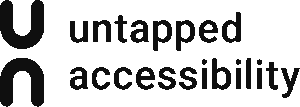
This session is supported by Untapped Accessibility. Untapped Accessibility launched in October 2022 to support BC organizations comply with the Accessible British Columbia Act. A certified social enterprise, they have helped over 180 organizations reach beyond compliance and create more accessible organizations with comprehensive and innovative approaches to disability inclusion. They generate revenue for Open Door Social Services Society, supporting the non-profit’s mission to open doors to lifelong learning and career success for more people with disabilities.
2025-26 Accessibility Bites Series
- Accessibility Bites: Introduction to Web Accessibility, August 28, 2025
- Accessibility Bites: Supporting Post-Secondary Students with ADHD, September 25, 2025
- Accessibility Bites: Let’s Talk about Learning Disabilities, October 30, 2025
- Accessibility Bites: The Gift of Dyslexia, November 27, 2025
- Accessibility Bites: Access Friction, December 11, 2025
- Accessibility Bites: UDL 3.0 in Practice, January 29, 2026
- Accessibility Bites: An Indigenous Lens on Disability Rights, February 26, 2026
For recordings and resources from previous Accessibility Bites workshops, visit the Accessibility Bites Pressbook.

The British Columbia Open Education Community (BCOEC) welcomes members from the post-secondary sector in British Columbia and the Yukon. This community convenes monthly in virtual gatherings, fostering an environment for sharing insights, providing support, and engaging in discussions about the challenges, best practices, and current issues within open education.
Register now!
Recordings and transcripts available from past meetings: B.C. Open Education Community (Playlist)
Session Description
This brief session will offer practical strategies for creating learning environments that support students with ADHD. You’ll learn how to reduce cognitive load to support executive functioning, explore multi-modal teaching methods, and discuss ways to build flexibility without sacrificing accountability. Whether you’re designing a course or working one-on-one with students, you’ll leave with tools to better meet their needs and help them thrive.
Learning Outcomes
- Identify key challenges faced by post-secondary students with ADHD
- Select multi-modal strategies to support diverse attention and learning needs
- Examine course elements that balance flexibility and accountability to promote student success
Schedule
- Introductions and access information – 5 minutes
- Key definitions – 5 minutes
- Overview of multi-modal learning and cognitive load – 10 minutes
- Building in both flexibility and accountability – 5 minutes
- Wrap-up and ongoing learning: access statements – 5 minutes
Register Now!
This notice is to inform you that this session will be recorded, archived, and shared after the event. By participating in this session, you acknowledge that your participation will be recorded and the recording will be made available publicly.
About the Facilitator
Meg Ingram (they/them) is a multiply-disabled accessibility advocate with a passion for project management, planning coordination, and equitable education. Drawing from their background working in both higher education and social services, they have a deep passion for carving out accessible processes and building meaningful relationships within and across sectors. Meg holds an M.A. in Sociology, with a focus in disability studies, from Queen’s University, and a B.A. in Sociology from the University of Victoria.

This session is supported by Untapped Accessibility. Untapped Accessibility launched in October 2022 to support BC organizations comply with the Accessible British Columbia Act. A certified social enterprise, they have helped over 180 organizations reach beyond compliance and create more accessible organizations with comprehensive and innovative approaches to disability inclusion. They generate revenue for Open Door Social Services Society, supporting the non-profit’s mission to open doors to lifelong learning and career success for more people with disabilities.
2025-26 Accessibility Bites Series
- Accessibility Bites: Introduction to Web Accessibility, August 28, 2025
- Accessibility Bites: Supporting Post-Secondary Students with ADHD, September 25, 2025
- Accessibility Bites: Let’s Talk about Learning Disabilities, October 30, 2025
- Accessibility Bites: The Gift of Dyslexia, November 27, 2025
- Accessibility Bites: Access Friction, December 11, 2025
- Accessibility Bites: UDL 3.0 in Practice, January 29, 2026
- Accessibility Bites: An Indigenous Lens on Disability Rights, February 26, 2026
For recordings and resources from previous Accessibility Bites workshops, visit the Accessibility Bites Pressbook.

The British Columbia Open Education Community (BCOEC) welcomes members from the post-secondary sector in British Columbia and the Yukon. This community convenes monthly in virtual gatherings, fostering an environment for sharing insights, providing support, and engaging in discussions about the challenges, best practices, and current issues within open education.
Register now!
Recordings and transcripts available from past meetings: B.C. Open Education Community (Playlist)
Event Description
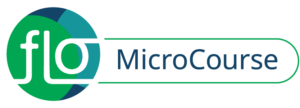 This one-week Facilitating Learning Online (FLO) MicroCourse is designed to help educators and instructional designers bridge the gap between the theory and practice of Universal Design for Learning (UDL) to make learning more equitable and meaningful. Participants will draw on UDL principles to plan and develop assessments, evaluate strategies, and provide constructive feedback on each other’s work. They are also encouraged to incorporate other pedagogical theories alongside UDL. This course is best suited for those with a theoretical understanding of UDL who are ready to explore its practical application in different scenarios and contexts.
This one-week Facilitating Learning Online (FLO) MicroCourse is designed to help educators and instructional designers bridge the gap between the theory and practice of Universal Design for Learning (UDL) to make learning more equitable and meaningful. Participants will draw on UDL principles to plan and develop assessments, evaluate strategies, and provide constructive feedback on each other’s work. They are also encouraged to incorporate other pedagogical theories alongside UDL. This course is best suited for those with a theoretical understanding of UDL who are ready to explore its practical application in different scenarios and contexts.
Learning Outcomes
By the end of the course, participants will be able to:
- Demonstrate the application of UDL principles to make learning environments more equitable
- Apply UDL principles to remove barriers from assessments
- Evaluate the efficacy of UDL principles in removing barriers
Course Logistics
Time commitment: 8–10 hours
Format: Asynchronous
While most of the learning will happen asynchronously, we will offer an optional synchronous session on Tuesday, October 21, 2025, 9:30–10:30 a.m. PST.
Registration Coming Soon
This notice is to inform you that this session will be recorded, archived, and shared with course registrants. By participating in this session, you acknowledge that your participation in this session will be recorded and the recording will be made available to other course participants.
About the Facilitator
Hajime Kataoka (he/him) is an uninvited guest from Kobe, Japan who lives on the traditional territory of Lekwungen and W̱SÁNEĆ peoples. As a Director of Online Learning Services at the Division of Continuing Studies at the University of Victoria, he provides leadership in the advancement of the Division’s online learning strategy.
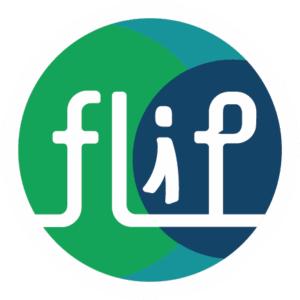
Event Description
Join us for a free Facilitating Learning in Person (FLIP) workshop on LEGO® Serious Play (LSP) on September 24 from 1–3 p.m. at Capilano University. This interactive, in-person workshop introduces educators to the core principles and practices of the LSP methodology and explores its powerful applications in higher education. Through hands-on individual and group activities, participants will experience the four-step LSP process: posing questions, building, sharing, and reflecting. In addition to exploring its theoretical foundations and historical context, participants will gain insight into how LSP can be used to enhance teaching and learning across a wide range of subjects.
The session will be delivered live and in person. All B.C. post-secondary educators are invited!
Learning Outcomes
By the end of the workshop, participants will be able to:
- Describe the origins, development, and research underpinning the LSP approach.
- Identify and explain the four essential stages of the LSP methodology.
- Analyze how LSP can be adapted for various disciplines and learning contexts in higher education.
- Design learning activities that effectively integrate the LSP methodology.
Registration Coming Soon
This workshop will not be recorded.
Given the limited number of seats available, we ask that you consider your availability and capacity to attend the full workshop in person before registering. Your attendance will be expected, and, if your plans change, please cancel in advance so we can offer your spot to someone on the waitlist.
Thanks to Capilano University for providing free space for this workshop.
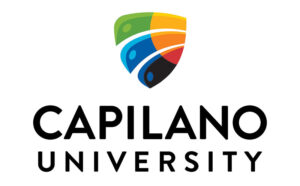
About the Facilitators
Olga Gonokhova (she/her) is an EAP/English instructor at Capilano University and Acsenda School of Management, with over 15 years’ experience teaching academic English, communication, and public speaking. She integrates innovative strategies such as LEGO® Serious Play into her post-secondary classes to promote student engagement, collaboration, and critical thinking. Olga holds a Master’s degree in TEFL/TESL Education and currently serves as the Student Success Convenor in her department at Capilano University.
Fuat Ramazanov (he/him) is the director of the International Business Management Program at the Acsenda School of Management, a private post-secondary institution in Vancouver. As an educator, he is passionate about using creative and innovative approaches to teaching that stimulate engagement and learning and boost confidence and creativity in his students. His teaching style incorporates a blend of stories, expertise, games, and humour. Fuat designed the Creativity and Design Thinking in Business course incorporating various applications of generative AI across different stages of the creative process. He is a doctoral candidate at the University of Calgary, with research focused on exploring students’ perceptions of the intersection between human and AI creativity.
Session Description
Millions of Canadian learners are affected by learning disabilities, yet these challenges often go misunderstood, leading to poorer educational outcomes and repeated negative experiences. This session will provide a brief overview of learning disabilities, how they commonly show up in classroom settings, and evidence-based strategies for supporting these learners.
Register Now!
This notice is to inform you that this session will be recorded, archived, and shared after the event. By participating in this session, you acknowledge that your participation will be recorded and the recording will be made available publicly.
About the Facilitator
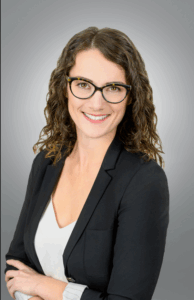
Dr. Jennifer Fane (she/her) is the Lead Research Associate in the Education and Skills knowledge area at The Conference Board of Canada. She holds an interdisciplinary PhD in education, public health, and social policy from Flinders University, South Australia. She started her career as a classroom teacher and has worked as a teacher, professor, and educational researcher in the birth-to-five, K-12, and post-secondary systems in Canada and Australia for over 18 years. Prior to joining the Conference Board, Jennifer was the Director of Education at the Learning Disabilities Society of Greater Vancouver, supporting neurodivergent learners ages three-to-adult across BC. Jennifer brings a passion for translating research into practice to her work at the Board.
This session is supported by The Conference Board of Canada.

The Conference Board of Canada is an independent, not-for-profit research organization whose goal is to equip Canadian leaders and decision makers with the integrated and independent research required to enable them to tackle society’s greatest challenges. This session presents research conducted in partnership with the Future Skills Centre on the neuroinclusivity of Canadian post-secondary education.
2025-26 Accessibility Bites Series
- Accessibility Bites: Introduction to Web Accessibility, August 28, 2025
- Accessibility Bites: Supporting Post-Secondary Students with ADHD, September 25, 2025
- Accessibility Bites: Let’s Talk about Learning Disabilities, October 30, 2025
- Accessibility Bites: The Gift of Dyslexia, November 27, 2025
- Accessibility Bites: Access Friction, December 11, 2025
- Accessibility Bites: UDL 3.0 in Practice, January 29, 2026
- Accessibility Bites: An Indigenous Lens on Disability Rights, February 26, 2026
For recordings and resources from previous Accessibility Bites workshops, visit the Accessibility Bites Pressbook.
Event Description
Join us for a fun and energizing 90-minute Facilitating Learning Online (FLO) workshop to explore innovative course design ideas. Although EdTech and video games have vastly different audiences, they share many design principles that can drastically affect users’ wellness and success.
 In this session, participants will:
In this session, participants will:
– Hear stories of experience design fails and breakthroughs in the tech industry
– Inspect emotional and wellness effects of different digital experiences
– Explore lessons from the tech and game industry when designing courses for digital spaces
– Implement a design principle on your own courses
No previous gaming experience required!
Registration Coming Soon
This session will not be recorded.
About the Facilitator
Selina McGinnis (she/them) is a Product and Experience Designer in the tech industry, who has learned about how people engage with digital environments, including learning management systems, websites, apps, and even video games. They have worked in technology in B.C.’s post-secondary sector for over 10 years, solving student, administrator, and instructor challenges through technology products, services, and process design.
